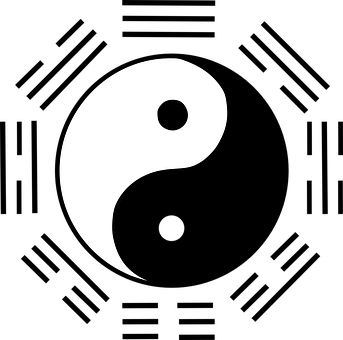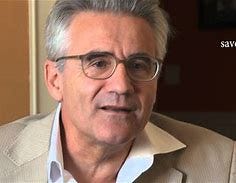
This is the latest in a series. If you’re starting here, I’ll begin with a brief summary of what has preceded. (For a guide to the whole series, see under Religion and Spirituality on the Blog Index page.)
My inspiration was a response I received from Isak Dinesen on Medium.com which mentioned a book by André Comte-Sponville called The Little Book of Atheist Spirituality¹. The title was intriguing because it contained what I considered to be a contradiction in terms, so I decided to buy it to see what the author’s point of view might be. In the first four Thoughts I have been debating the nature of God with Ms. Dinesen, who considers herself to be a spiritual atheist, and who I assume is a fan of Comte-Sponville’s book. So far we haven’t got round to discussing it specifically. That begins here and will continue in future articles. Here is a brief synopsis.
He is a philosopher by profession and, as is obvious from the title, he is formulating what he considers to be a spiritual belief-system from an atheistic perspective. The jacket-notes say: “According to Comte-Sponville, we have allowed the concept of spirituality to become intertwined with religion and thus have lost touch with the nature of a true spiritual experience”. He has experienced a “loss of faith in God but not in spirituality”, and he “offers a convincing treatise on a new form of spiritual life”.
That sounds exciting. Even though I am someone who seeks to reunite religion with its original spiritual foundations, I am always pleased to hear people claiming to be “spiritual but not religious”, if this means that they have seen through the limitations of organised religions, and are seeking something deeper. The question then arises, how deep does such a person want to go? I was therefore concerned to read in the same notes: “In order to change this, however, we need not reject the ancient traditions and values that are part of our heritage; rather we must rethink our relationship to these values and ask ourselves whether their significance comes from the existence of a higher power or simply from the human need to connect to one another and the universe”. What the writer seems to be saying here is that, for Comte-Sponville, religion has served an important cultural purpose historically, but the reasons for that may have been illusory, namely a false belief in a higher power. Belief in some form of supernatural power is what I would usually expect from someone claiming to be spiritual but not religious. I therefore wonder whether he will be advocating something truly spiritual, or something closer to Humanism. I’ll have to wait and see.
His chapter headings are:
- Can We Do Without Religion?
- Does God Exist?
- Can There Be an Atheist Spirituality?
- Conclusion: Love and Truth
As I said, future articles will discuss specific points in his text, and those will be the topics. Before that, it would be useful to discuss the terms and try to establish definitions, which is what I’ll do here. What precisely do we mean by religion in general, a religion, spirituality, and atheism?
Comte-Sponville spends some time trying to define religion, accepting that this is a difficult task. He quotes approvingly a definition from Emile Durkheim, but finds it limited because it is sociological or ethnological. He therefore seeks something more theological or metaphysical, and comes up with this: “any organized set of beliefs and rituals involving the sacred, the supernatural or the transcendent (this in the broad sense of the term) and specifically involving one or several gods (this is the restricted sense), which beliefs and rituals unite those who recognize and practice them into a moral and spiritual community” (p4).
It seems to me that, while saying that he is defining religion, here he is actually defining what constitutes a religion. His chosen formulation enables him to conclude that various Eastern traditions are not religions, specifically Buddhism, Taoism, Jainism, and Confucianism. He thinks that these are “a mixture of spirituality, ethics and philosophy rather than a religion in the generally accepted Western sense of the word. They are less about God than they are about human beings or nature. They have to do less with faith than with meditation… not so much in churches as in schools of life or wisdom. This is especially true of Buddhism, Taoism and Confucianism… They are sometimes referred to as atheistic or agnostic religions… no deity, no revelation, no personal or transcendent Creator of any sort”.
My first response is that, even if Buddhism, Taoism, and Jainism are sometimes described as atheistic religions, they are nevertheless still called religions. How can that be? Whoever says that obviously does not think that atheism and religion are contradictory terms. (I’ll discuss that point later.)
Comte-Sponville has made it clear what ingredients he considers necessary in a religion. Because he is keen to promote the idea that humans can live without religion, he conveniently chooses a definition which seeks to reduce religion to either Judaism, Christianity, or Islam. But why should we go along with “the generally accepted Western sense of the word”? Why is the Western definition of a religion considered superior to others? Perhaps the West has misunderstood the meaning of religion, as I’ll discuss below.
Buddhism, Taoism and Jainism fulfill the first part of his definition of religion, in that they involve the sacred, the supernatural or the transcendent. They merely reject the concept of a personal Creator God whom one might worship, or to whom one might pray. Just because one personal, masculine God did not singlehandedly create the material universe, however, does not mean that it is not the result of supernatural intelligence(s).

If these other systems do not accept a personal Creator God, they have to explain the existence of the material universe somehow. In order to do this, they usually fall back upon the concept of an impersonal Creative Principle. If we take Taoism as an example, Comte-Sponville says that it has no “transcendent Creator of any sort”. This is clearly not true. One only has to read the opening lines of the Tao Te Ching, the foundational text of Taoism, to find that:
“The Tao that can be told is not the eternal Tao. The name that can be named is not the eternal name”. The eternal Tao is clearly beyond all words and attribution, which seems transcendent to me.
“The nameless is the beginning of heaven and earth. The named is the mother of ten thousand things”. Here we have two creative principles of some sort. The nameless, eternal Tao is the source of heaven and earth. And why is the Great Mother Goddess not considered a Creator deity of some sort by Comte-Sponville? (The ten thousand things clearly refers to the vast diversity of manifestations in the universe.)

Comte-Sponville does not mention Hinduism in his list of atheistic religions, so we can assume that he considers it theistic. Nevertheless, Hinduism has the equivalent of the eternal, nameless Tao (Brahman), and also a named God, apparently the Creator (Brahma). (Whether Brahma is understood in the same way as Christians understand their Creator God is a different question, which I won’t go into here, as Buddhism is the topic under consideration.) All we need note is that Hinduism, considered theistic, has close parallels with Taoism, considered atheistic.
Is Buddhism atheistic and Hinduism theistic? Are they significantly different? You may not have heard of the late Ananda Coomaraswamy, but he is one of the great authorities on Traditionalism, which is another word for the Perennial Philosophy. In his book Hinduism and Buddhism², he begins the introduction to the Buddhism section: “The more superficially one studies Buddhism, the more it seems to differ from the Brahmanism in which it originated; the more profound our study, the more difficult it becomes to distinguish Buddhism from Brahmanism, or to say in what respects, if any, Buddhism is really unorthodox. The outstanding distinction lies in the fact that Buddhist doctrine is propounded by an apparently historical founder, understood to have lived and taught in the sixth century B.C. Beyond this there are only broad distinctions of emphasis”.

Comte-Sponville says that Buddhism is not a religion, or is an atheistic religion, because there is no specified Creator God. Why might that be? Perhaps not because the Buddha did not believe in one, rather because he considered the question a distraction for his followers from the real issue. At the time there were fourteen so-called difficult questions of a metaphysical and theological nature, one of which was the origin of the world. The Buddha, however, rejected speculation on such matters, and “refused to answer these questions because they were vain and had no significance for salvation”³. By ‘salvation’ he means union with the transcendent, that is to say the true purpose of religion, as discussed below.
Comte-Sponville also calls Jainism atheistic, and therefore not a religion according to his definition. Yet it is not hard to find a different viewpoint where Jainism is described as “a non-theistic religion founded in India in the 6th century BC… The Jain religion teaches salvation by perfection through successive lives…”⁴. The second point suggests that it is very similar to Hinduism, which not even Comte-Sponville considers atheistic.
==================================================================================================
How should we define religion itself? Etymologically speaking, there are two possible origins of the word and, as Comte-Sponville points out, “modern linguistics has never managed to decide between them”. The first is the Latin verb religare which means to bind or link back, and the second relegare, which literally means to reread or, he says, contemplate. He doesn’t claim any specialist etymological knowledge, but thinks the second “more probable”, without explaining his reasoning. Religion for him is therefore “what is contemplated or reread… namely myths, founding texts, teachings… in a word, a revelation or tradition that is at once ancient and still relevant, accepted, respected, interiorized, both individually and communally”.
It seems to me that he prefers this second one simply because it fits more neatly with his definition of a religion (as above), and makes it easier to reject religion — you only have to disagree with the myths, founding texts and teachings. I am also not an etymologist, although I can see that the spelling of religare is closer to religion than relegare, which may or may not be relevant. I can say with some confidence, however, that religare, to bind back, is much closer to what religion and spirituality actually mean.
Comte-Sponville states that religare means bind back, but then says that this leads to a specific conception of religion; it is that which “binds people together”. This again fits with his definition of a religion, but the binding back is being ignored. (By coincidence, another writer on Medium seems to have failed to notice the implication of the word religare: “The word religion comes from the Latin word religare, which means ‘to bind’. A religion, therefore, is not merely a set of beliefs, but a set of beliefs that bind the believer”⁵. He has somehow failed to notice the ‘re’ in religare. And in his profile he describes himself as a Roman Catholic Deacon!)
According to the religions and spiritual traditions of the Perennial Philosophy, humans have a divine essence/nature which they lose touch with by becoming (incarnating as) human. The purpose of these traditions is therefore to show a way, by means of spiritual practices, to reunite with (link back, bind back to) the divine essence. This binding or linking back is the whole meaning and purpose of religion. Supporting evidence for this view is provided by the word yoga, which also means to link back, yoke, union. As one online source says: yoga is “a school of Hindu philosophy advocating and prescribing a course of physical and mental disciplines for attaining liberation from the material world and union of the self with the Supreme Being or ultimate principle”⁶.
That is what the spiritual search, and all true religion is about. I believe that this was what Jesus was intending when, according to Luke’s Gospel, he said: “The kingdom of heaven is within you” (17.21 – I accept that other translations may not say this quite so clearly). Another relevant teaching can be found in the Sermon on the Mount: “Be perfect, therefore, as your heavenly Father is perfect” (Matthew 5.48). You have to become of the same nature as the Divine Source.
It would therefore be surprising if religare were not the correct etymological origin for our word religion.
As I said above, I believe that Comte-Sponville has chosen a definition of religion which helps him to promote his agenda of living without it. In the light of the discussions above, I would like to suggest some simpler definitions:
Religion consists of two beliefs:
- in the supernatural or the transcendent, specifically that the universe we inhabit has a supernatural source.
- that humans’ ultimate nature is the same as this Divine (supernatural) source, and that it is possible to reconnect with it.
A religion is a system which seeks to guide the individual to a reunion with this source.
According to these definitions, not only would Buddhism and Jainism be religions, they would be examples of true religions. It is the Western (Abrahamic) religions which fall short, at least in the forms presented for general public consumption. (They have deeper, more mystical traditions to accompany the exoteric versions: Kabbalah and other forms of Jewish mysticism, esoteric Christianity, and Sufism.)
With these definitions religion becomes identical to spirituality, which is what it once was and still is, I believe.

What’s the definition of atheism? There was an interesting word in the internet quote above used to describe Jainism, ‘non-theistic’. So far we have only been using the term a-theism. It seems that we could make a very useful distinction between the two. In an earlier article in this series I suggested that we should separate atheists into two groups. One would be called hard, meaning those who completely deny anything supernatural or transcendent — this would be equivalent to the philosophy of scientific materialism. The other would be called soft, those who believe in the supernatural, the transcendent, just about everything that a religious person (theist) believes in, apart from an anthropomorphic, personal God who can be worshipped and prayed to. It seems that ‘non-theist’ would be a very appropriate term for this soft atheism.
In this scenario Buddhism and Taoism would not be considered atheistic, rather non-theistic, and would definitely be called religions. From our correspondence, it seems to me that Ms. Dinesen would also be more appropriately described as a non-theist, and I’m looking forward to hearing from her whether she agrees. It remains to be seen which term will be more appropriate for Monsieur Comte-Sponville, but I already see some danger signs in his first chapter.

=================================================================================================
Footnotes:
1. Viking, 2007
2. New York: Philosophical Library, 1943
3. My source for this paragraph including the quote is: Buddhist Cosmology, by W. Randolph Kloetzli, Motilal Banarsidass Publishers, 1983, p1–2
4. I found this quote doing a simple internet search on Jainism. There was no reference given.
5. by Rev. Mr. Matthew Newsome, https://testeverythingblog.com/what-is-religion-356908f99b7a